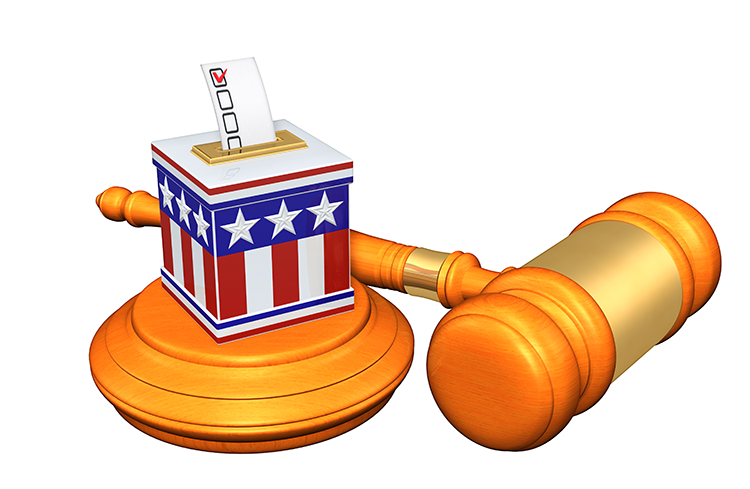SCOTUS order allows late counting of absentee ballots in Pennsylvania

Image from Shutterstock.com.
U.S. Supreme Court Chief Justice John G. Roberts Jr. apparently joined with the high court's three liberal justices Monday in a Pennsylvania election dispute, creating a 4-4 split that allowed Pennsylvania to count absentee ballots received up to three days after Election Day.
The split had the effect of denying a GOP stay request and leaving in place a Pennsylvania Supreme Court decision that extended the deadline, SCOTUSblog reports.
The state supreme court had cited a voting rights provision of the state constitution when it allowed three extra days to count ballots, unless a preponderance of the evidence shows the ballot was mailed after Election Day.
The Supreme Court’s orders are here and here; the Washington Post and the New York Times also have coverage.
Justices Clarence Thomas, Samuel A. Alito Jr., Neil M. Gorsuch and Brett M. Kavanaugh said they would have granted the stay.
GOP legislators and the Pennsylvania Republican Party had argued that the state supreme court decision on late ballots violated federal law establishing a single Election Day, according to SCOTUSblog. They also argued that the state supreme court decision violated the U.S Constitution, which authorizes states to set the time, place and manner of federal elections.
The New York Times described the court’s orders as a major victory for Democrats, who are outpacing Republicans in requesting absentee ballots. The Washington Post and the New York Times pointed out that the 4-4 split highlights the importance of Supreme Court nominee Judge Amy Coney Barrett, who could be confirmed as soon as next week.
Write a letter to the editor, share a story tip or update, or report an error.


